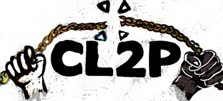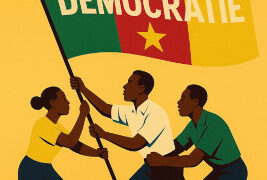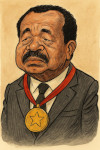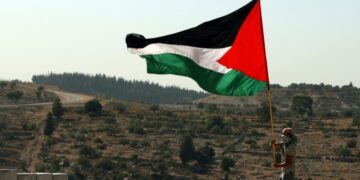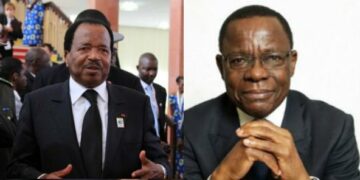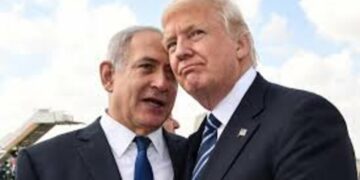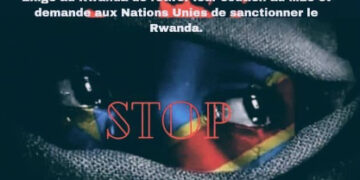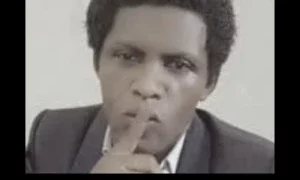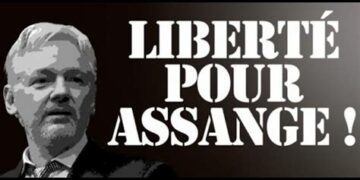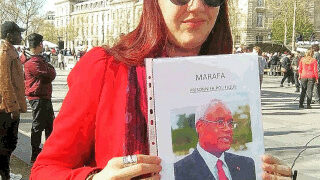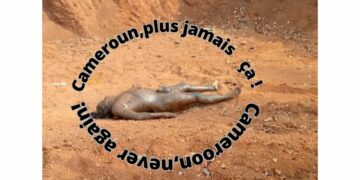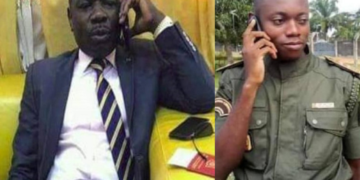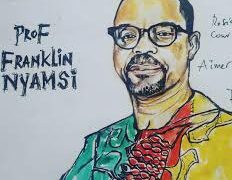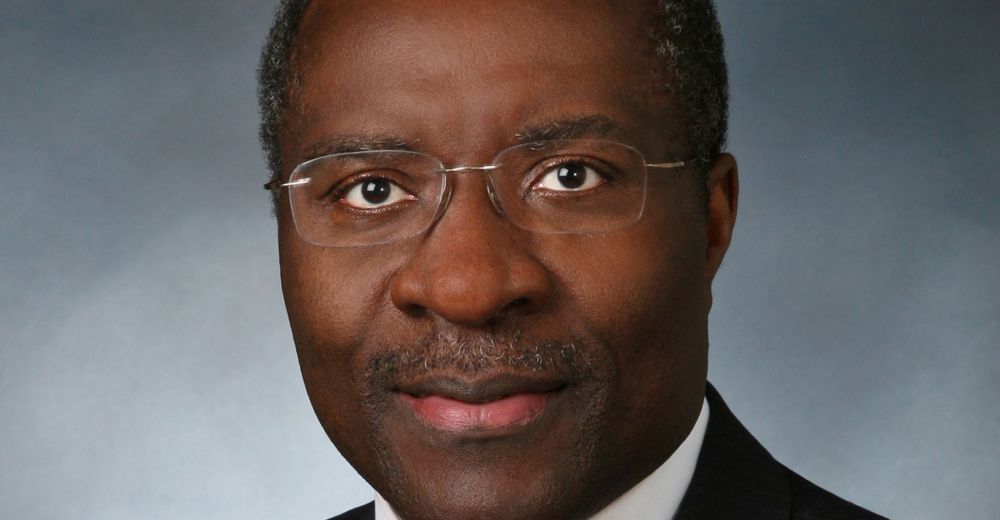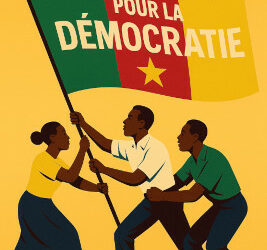Christopher Fomunyoh Director at the NDI « Signing decrees in Yaounde regarding the crisis while keeping Anglophone leaders in jail will not resolve the grievances»
Christopher Fomunyoh Director at the National Democratic Institute for International Affairs ” I believe strongly that the crisis can be resolved; but it would have to be through genuine and inclusive dialogue in which the relevant segments of society are duly represented. Lives have been lost, property destroyed, academic years disrupted and even the functioning of courts and other public services negatively impacted; so this can no longer be treated as a simple case of corporatist demands. Huge segments of the population have lost confidence in the government’s ability to cater to their needs or heed their desire for their rights to be respected.”
The English-speaking part of Cameroon is enduring a prolonged crisis. When did it start? What is the cause of the problem?
The current crisis burst to the surface in October 2016, provoked by grievances expressed by lawyers with regards to the application of Common Law in English speaking regions of Cameroon, and by teachers with regards to the role of the English language and the protection of the Anglo-Saxon curriculum in schools and colleges in the same regions of the country. These grievances had been simmering for many years. The brutality of the security services in responding to the actions of these two groups then sparked a general revolt within a population that has been feeling aggrieved and disaffected with the management of political power in Cameroon. It is unfortunate that lives have been lost in the process, properties have been destroyed and hundreds of Anglophone Cameroonians are now in detention, many of whom are being tried before a military tribunal in Yaounde on charges of terrorism and insurrection.
How would you qualify the response of the government to the crisis?
The government response showed a lot of weaknesses at the beginning of the crisis, perhaps because it hoped the crisis could be swept under the rug. First, there was the use of excessive brute force on university students and unarmed civilians who were demonstrating peacefully for their rights. Secondly, some government officials made very spiteful public statements that further inflamed tensions by claiming there was no marginalization of Anglophones in Cameroon, and this led many people to conclude that the government had underestimated the degree to which Anglophone Cameroonians are disaffected with its approach to governance over the past five decades. In more recent weeks, some actions have been taken by the government to address some of the specific demands by lawyers and teachers. However, it is difficult to imagine a definitive resolution of the ongoing crisis without a comprehensive approach that tackles all the issues raised through an inclusive and open dialogue with the most aggrieved parties and other Anglophone leaders. Needless to say that some of the solutions being proposed by the government are being undermined by the fact that highly respected Anglophone lawyers, University lecturers, teachers and civic leaders are still in detention in Yaounde. I see their unconditional release as a confidence building measure that could facilitate further dialogue, and I have publicly called on the government to do that.

Could you give the historical context that may help everyone to understand the crisis?
The question of Anglophone marginalization in Cameroon has been recurrent at various points since independence in 1960, and reunification of the two Cameroons in 1961. Over time, these grievances have been exacerbated, notably by the dissolution of the Federal Republic of Cameroon in 1972 and its transformation into a unitary state; and then the changing of the country’s name in 1984 from “the United Republic of Cameroon” to just “the Republic of Cameroon” – which incidentally was the name of French speaking Cameroon prior to reunification in 1961. By this change, the government opened itself to criticism by many Anglophones that it no longer had regard for Anglophone Cameroonians. Moreover, over the years, Anglophones have felt shut out of senior government positions as illustrated by the fact that today, the most senior Anglophone is the fourth in line of state protocol, and not even in the line of presidential succession, as opposed to the second position that was initially written into the federal constitution of 1961. Also, only one Anglophone is a cabinet minister with a full portfolio in the current government (of about 40 ministers with portfolios), and that is the Minister of Forestry and Wildlife. For many Anglophones, this is a marginalization gone too far.
How is the crisis affecting the rest of Cameroon?
Media discussions around the crisis have provided an opportunity for many Cameroonians of the younger generation in all 10 regions of the country to gain insights into the country’s history. The crisis has also spurred leaders from other regions of the country — within political parties, academia, civil society and religious bodies — to speak out for social justice and equity. For example, when internet was shut down for three months in Anglophone regions of the country, some of the strongest advocates against that act of collective punishment and deprivation were fellow Cameroonians from other regions of the country, including many that are based in foreign countries such as France, Germany, Belgium, the United Kingdom and the United States. There’s no doubt that fellow Cameroonians in the other regions who have relatives and friends in the two Anglophone regions also feel the pinch, just as the slowdown in business in these regions has negatively impacted the economy of the country as a whole.
What has so far been the African and the international reaction to that crisis? How do you appreciate that reaction?
Africa and the world at large seem to be so consumed by other burning global crises that little attention is being paid to the situation in Cameroon. Of course, the special representative of the United Nations Secretary General for the Central Africa sub region visited the country at the peak of the crisis and may have contributed to the calming of tensions and lifting of the internet shut down. Some foreign governments issued statements through their embassies in Yaounde, but the overall response has been timid. Perhaps this is a sign that everyone hopes we would resolve the crisis without further loss of life and other forms of violence.
What solution would you propose for the crisis?
I believe strongly that the crisis can be resolved; but it would have to be through genuine and inclusive dialogue in which the relevant segments of society are duly represented. Lives have been lost, property destroyed, academic years disrupted and even the functioning of courts and other public services negatively impacted; so this can no longer be treated as a simple case of corporatist demands. Huge segments of the population have lost confidence in the government’s ability to cater to their needs or heed their desire for their rights to be respected. As Cameroonians, we therefore have an obligation to create an enabling environment in which all of the grievances raised can be thoroughly discussed and mutually agreeable solutions found. If citizens in Anglophone regions feel alienated from the Yaounde-based government, signing numerous decrees in Yaounde regarding the crisis while keeping Anglophone leaders in jail will not resolve the grievances. This is the 21st century and citizens are demanding for their voices to be heard and for their dignity to be respected. They want a seat at the table, and democratic governments have learned to provide the appropriate space for diverse viewpoints to be heard and integrated into decision making. I therefore believe that only through the creation of such proper space for healthy, constructive, and all-inclusive dialogue can we, as Cameroonians, find a common understanding on the way forward. Our forefathers negotiated important transactions with the colonial powers, and the generation of our fathers negotiated independence and reunification; there is therefore no reason why our generation which is more educated and better equipped than they were should be denied the opportunity to also hammer out the rules that will determine and guide our future wellbeing. You cannot deny a whole generation that opportunity, especially when their demand is inspired by a genuine desire to rectify the failures and shortcomings of past decades.
Since independence in 1960, Cameroon has been ruled by only two presidents — Ahmadou Ahidjo from 1960 to 1982, and then Paul Biya from that date up to today. What explains this fact? What are its consequences on Cameroon’s political and economic life?
Your question definitely captures the very limited space for political entrepreneurship in Cameroon. Our inability to regularly renew political leadership in the country has led us to where we are today. We are governed by octogenarians whereas close to 60/65 percent of the population is less that 30 years old. Since independence, Cameroon as a country never experienced a peaceful transfer of power through the ballot box although Anglophone Cameroon did at the sub-national level. On the other hand, for African countries such as Senegal, Ghana, Benin, Cote d’Ivoire, Botswana, Kenya, Nigeria, Niger, Mali, Mauritius, South Africa, the alternation of political leadership is commonplace. Democracy in these African countries and lots more is vibrant; ours in Cameroon is on life support. This state of affairs has a chilling effect on our ability to thrive as a people. We are a country of giants suffocating under the yoke of sit-tight, autocratic old men, whose inability to live up to citizens’ expectations inhibit our ability to shine as a nation. This prevailing sense of lack of opportunity and political uncertainty also impacts negatively on the attractiveness of whatever business and investment opportunities we have but that are not being fully exploited.
Presidential elections will be held in Cameroon in October 2018. Paul Biya, who will be 85 years old then will probably run for another seven-year term. Previous election results in Cameroon have been disputed because of fraud and the absence of a level playing field for candidates. What must be done to level the playing field during the competition and during the counting of the ballots?
The need for electoral reform in Cameroon is long overdue. Many political parties and civil society organizations have drafted proposals on amendments that could improve the electoral framework and conditions for free and fair elections. I have always said that it is better to have a common understanding of the ground rules before we go into elections than to spend energy and resources managing post election crises because of failed or flawed polls. Cameroonians are clamouring for change. They are restive about the desire that it happen through the ballot box, and I hope that using modern technology, the election management body (ELECAM) and citizens groups would enhance transparency in the entire process so that the accuracy of the outcome is not in doubt, and the result is accepted peacefully by all parties and candidates. Cameroon’s track record on competitive presidential elections is abysmal, but the world is fast changing and global trends favor the younger generation who form the bulk of our demographics; and therefore extraordinary steps must be taken to make sure the 2018 polls are different from past experiences.
In the lead up to the 2011 presidential election, rumors circulated that you would run. You didn’t. Why? Would you run for the next presidential election in 2018?
October 2011 is behind us and, at the time, I did explain to my fellow compatriots during a press conference in Douala why I did not present my candidacy then. Six, seven years since that time, the situation of the country has changed dramatically. Cameroonians are worse off today than they were six years ago. Democracy in our country is under serious threat. Political space is shrinking everyday and political parties, human rights organizations, the media and youth across the entire country can attest to that. Citizens in various sectors of society — health, education, the private sector, etc — are restless about their conditions of life and wellbeing, and prospects for their future. Add to that the Anglophone crisis we just discussed, and superimpose on all that the existential threats of violent extremism and Boko Haram in the northern part of the country and cross border insecurity from neighboring Central African Republic in the Eastern part of the country. Obviously, it goes without saying that the stress level for the country is high. Under such circumstances, Cameroonians are yearning for new ideas and new faces at the helm. They are asking committed, patriotic citizens to make their utmost contributions at the right time to improve the future wellbeing of their fellow country men and women. I owe it to my fellow compatriots to make my expertise and experience, and my global relationships available to them in what must be a collective effort or endeavor to redeem the fate and future of our beloved country.
Is that why you launched your personal Foundation in Cameroon, even as you continue to work for the National Democratic Institute (NDI) across the continent?
In fact, the Fomunyoh Foundation (www.tffcam.org) was launched in 1999 for the purpose of improving the wellbeing of my fellow compatriots. It is a non-profit organization whose activities are very much focused on humanitarian causes, education, civil society capacity building and cultural development. I see the Foundation as an opportunity for me to give back to my Cameroonian community on the home front, and I am extremely pleased that since its launch 18 years ago, we have conducted activities in all 10 regions of the country, in partnership with educational institutions, traditional authorities, youth and women organizations. I am humbled and truly gratified that all of the Foundation’s activities are always highly appreciated by the populations we serve. As I have gone across the country, I see that the population’s needs are enormous, and we therefore plan to continue to do more in the years to come.
source: Hommes D’Afrique Magazine N° 98 July 2017
Copyright © Hommes D’Afrique Magazine, Yaoundé – Cameroun
